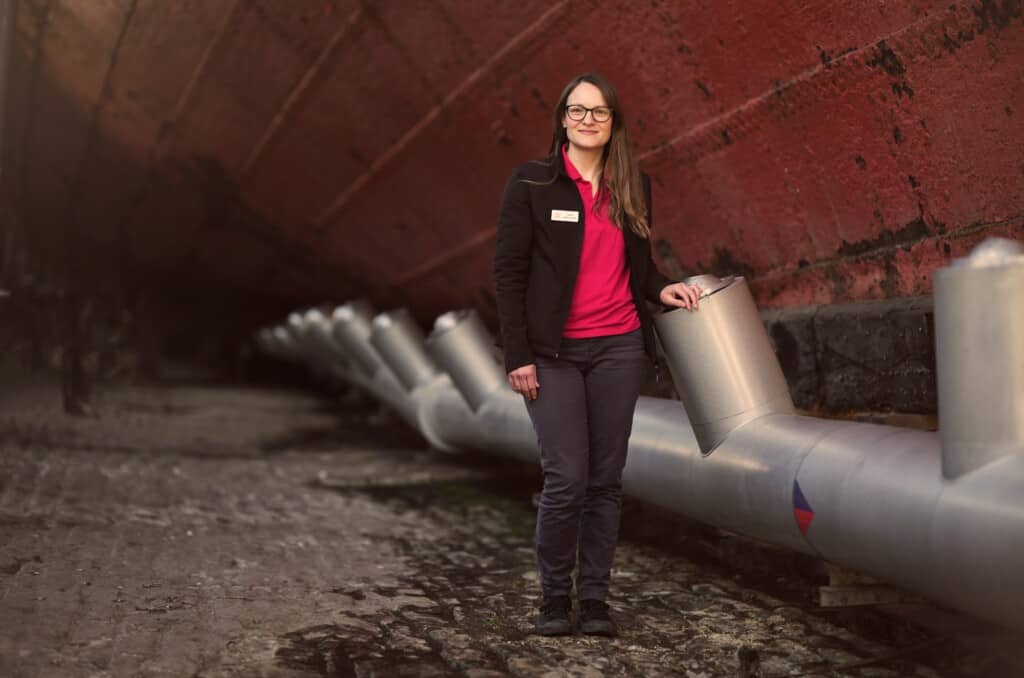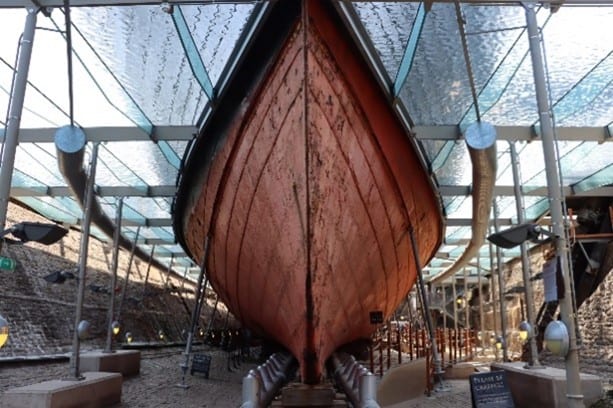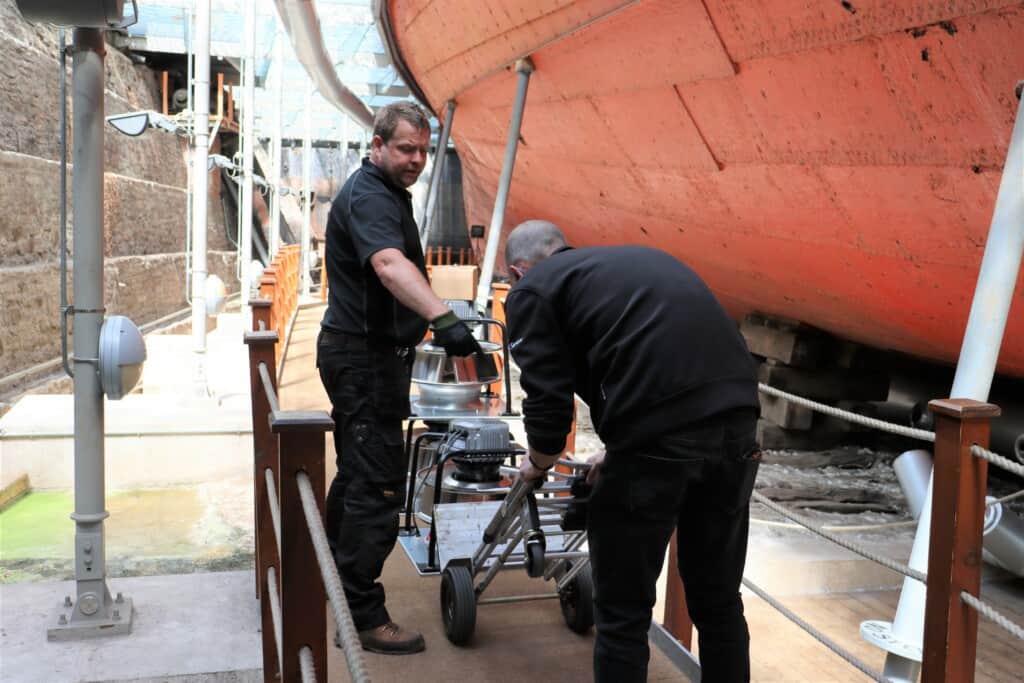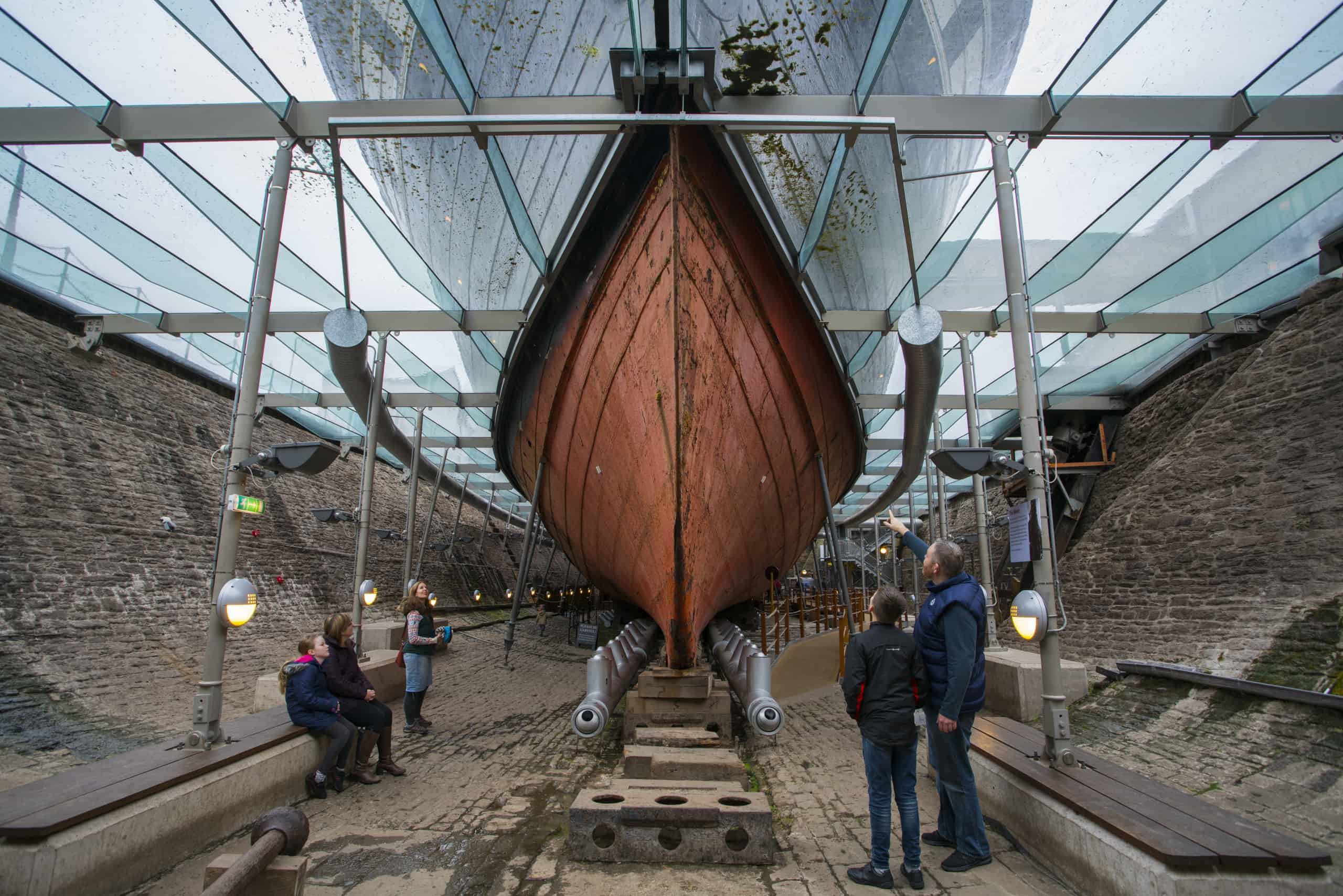The SS Great Britain Trust’s conservation engineer, Nicola Grahamslaw, an award-winning STEM ambassador, leads projects and upgrades to reduce the organisation’s carbon footprint. Nicola was appointed as the Ship’s Conservation Engineer in 2018 and also volunteers with the Institution of Mechanical Engineers (IMechE) and the Women’s Engineering Society (WES) as a STEM ambassador, mentor and local co-ordinator.
In 2019, we declared a climate emergency, committing to becoming carbon neutral by 2030. Since then, we have identified and targeted our biggest contributors to emissions, adapting our systems to significantly reduce our carbon footprint.
Our conservation method is unique – it was the first system in the world of its kind. We use two bespoke desiccant dehumidifiers to prevent corrosion by regulating the environment surrounding the ship’s iron hull, sealed with a ‘glass sea’.
These dehumidifiers are vital to our conservation of the ship, but also our biggest source of carbon emissions. By making them more energy efficient, we can continue to conserve our heritage for future generations while also protecting our planet’s future.
The modular design of our systems allows us to adjust equipment as new technology develops.
- Last year, we upgraded our sensors and software to help us get a more accurate picture of energy usage and better control the equipment which conserves the ship and our collections.
- This year, we invested in more energy efficient fan technology to circulate dried air around the ship and the dry dock.
- The belt-driven fan that has circulated air around the dry dock since the dehumidifiers were first installed in 2005 has been replaced by a new direct-drive fan grid – this upgrade will reduce emissions by 30% in that area.
- Later this year we plan to upgrade the other fan – that circulates the air around the ship interior, similarly, providing a 30% energy saving. The new fans are digitally controlled, and seamlessly integrate with our sensors and software.
- In October 2021, with the help of a WECA Green Business Grant, we installed a heat recovery system for the desiccant on both dehumidifiers. This will work alongside our existing air heat recovery pumps to deliver a reduction of around 25% in our gas consumption.
The SS Great Britain Trust is focused on making changes that have the greatest impact, optimising current equipment to minimise energy usage. The new fan grids alone will have an average annual energy saving equivalent to driving an electric car around the world twenty times!








